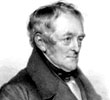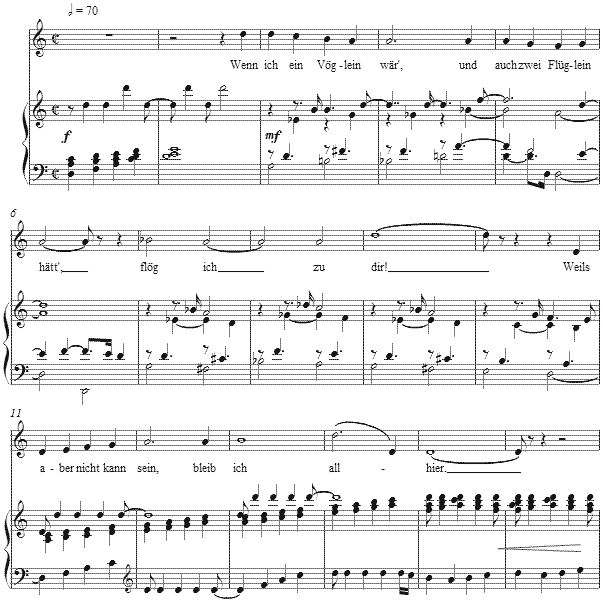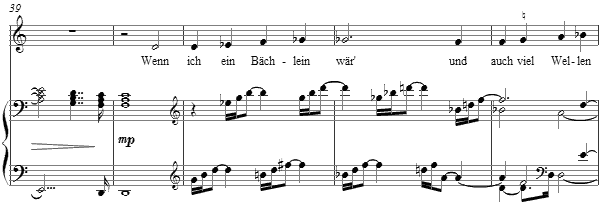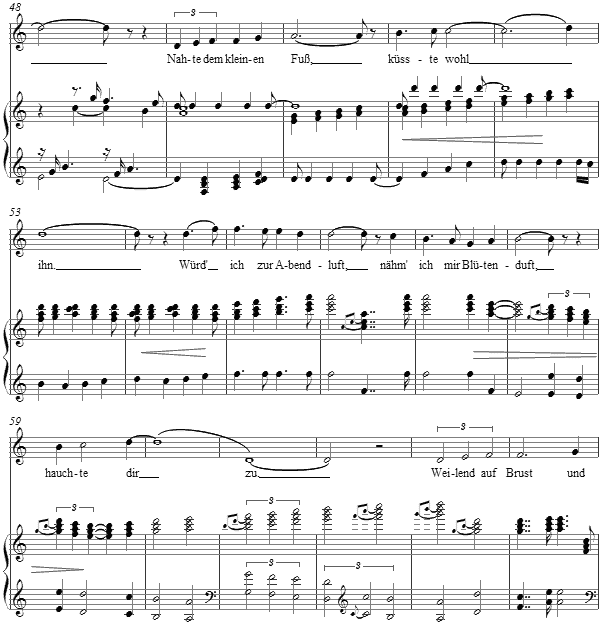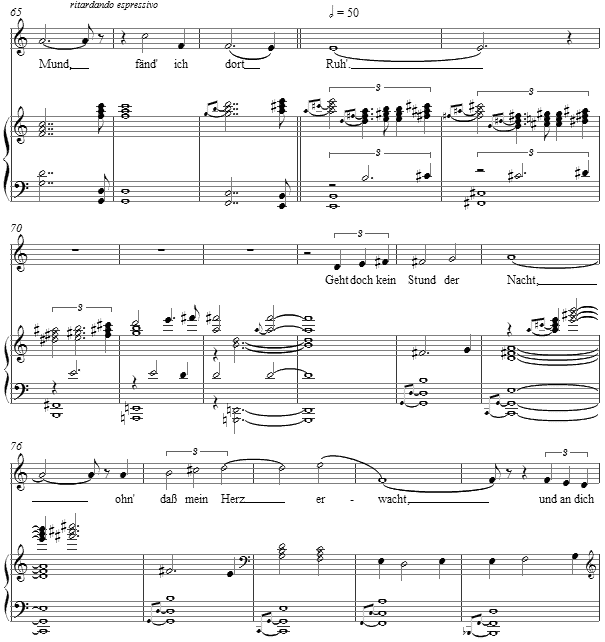Music and Texts of GARY BACHLUND
Vocal Music | Piano | Organ | Chamber Music | Orchestral | Articles and Commentary | Poems and Stories | Miscellany | FAQs
Ruf vom Berge - (2009)
Georg Friedrich Treitschke
for medium voice and piano
Wenn ich ein Vöglein wär'
Und auch zwei Flüglein hätt',
Flög ich zu dir!
Weils aber nicht kann sein,
Bleib ich allhier.
Wenn ich ein Sternlein wär'
Und auch viel Strahlen hätt',
Strahlt' ich dich an.
Und du säh'st freundlich auf,
Grüßtest hinan.
Wenn ich ein Bächlein wär'
Und auch viel Wellen hätt',
Rauscht' ich durch's Grün.
Nahte dem kleinen Fuß,
Küßte wohl ihn.
Würd' ich zur Abendluft,
Nähm' ich mir Blütenduft,
Hauchte dir zu.
Weilend auf Brust und Mund,
Fänd' ich dort Ruh'.
Geht doch kein' Stund der Nacht,
Ohn' daß mein Herz erwachtr
Und an dich denkt.
Wie du mir tausendmal
Dein Herz geschenkt.
Wohl dringen Bach und Stern,
Lüftlein und Vöglein fern,
Kommen zu dir.
Ich nur bin festgebannt,
Weine allhier.[ 5 pages, circa 3' 20" ]
Georg Friedrich Treitschke
G. F. Treitshke (1776-1842), born in Leipzig, was a German author and librettist, director, translator and avid lepidopterist for his ten volume Die Schmetterlinge von Europa. Trained to be a businessman, after his father's death he turned to his greater interest - writing and theater. In 1800 he worked at the Bergetheater, and was further engaged as director of Vienna's Hoftheater. From 1809 to 1814 he was director of Vienna's Theater an der Wien. Known for his libretti for opera composers he also translated many French opera libretti into German, as well as Mozart's Idomeneo into German from the Italian. In 1814 he was asked by Beethoven to revise Sonnenleithner's libretto of Fidelio after an earlier revision by Stephan von Brüning, and was colleague to other composers of his era, including Antonio Salieri, Joseph Weigl, Conradin Kreutzer, Carl Maria von Weber und Franz Schubert.
If I were a little bird
And had two little wings,
I would fly to you!
But as that cannot be,
I remain here.
If I were a little star
And could shine brightly,
I would shine upon you!
And you would look lovingly up,
And be thus greeted.
If I were a little brook
And had also many ripples,
I would rush through the green.
Nearing your little foot,
I would kiss it.
If I were the evening breeze,
I would carry blossom scents,
As breaths surround you.
Lingering on breast and mouth,
I would find such peace.
There is not one hour of the night
Without these my heart awakens
And I think of you.
As you a thousand times
Give me your heart.
While the stream and star,
Breeze and distant bird
Come to you,
I am held away,
Here to weep awhile.
The first stanza of this extended poem is drawn from a well-known folk song, a modern parody of which was written by 20th century poet Joachim Ringelnatz, simply titled Volkslied. Treitschke's text is no parody, but an extension of the more serious sentiment of the lover held away from the beloved. For this the setting opens abruptly in agitated syncopation, leading to a strophe accompanied with arpeggios as the harmony shifts between mediant chords within the minor tonic. Continuing repetitions of the opening in varying octaves act as curtains between the strophes.
The third strophe varies the vocal line to conform to the shifting harmonies of the accompaniment, now an octave higher and more brittle in texture.
A strophe then ends over the musical material of the introduction as the sentiment rushes ahead of the expected accompaniment. The next strophe rises to the highest tessitura of the vocal line, intensifying these images of "if" against the reality which impedes such hope.
The image of finding "rest" on breast and mouth is now colored by a diminution of tempo and more complex harmonic colors in shifting tonal domains. The final strophe returns to the aggressive opening as the vocal line rises to an emphatic, percussive cadence in D minor.
The score for Ruf vom Berge is available as a free PDF download, though any major commercial performance or recording of the work is prohibited without prior arrangement with the composer. Click on the graphic below for this piano-vocal score.
